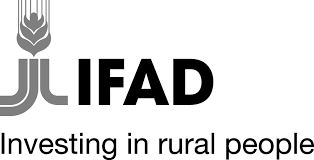IFAD, GAFSP and WFP announce partnership to support Bhutan’s transition to commercially oriented agroecological farming
Rome, 11 May 2023: The International Fund for Agricultural Development (IFAD) and the Royal Government of Bhutan (RGoB) have signed a loan and grant agreement amounting to US$30.94 million to improve food and nutrition security in Bhutan. The project – Building Resilient Commercial Smallholder Agriculture (BRECSA) – builds on the ongoing IFAD-funded Commercial Agriculture and Resilient Livelihoods Enhancement Programme (CARLEP). CARLEP is being implemented in six eastern dzongkhags (districts), while BRECSA will extend into four central and south-central dzongkhags. Together with CARLEP, BRECSA seeks to build a cutting-edge, resilient and competitive agri-food system in Bhutan, leading to sustainable incomes for farmers, jobs for youth, and improved national food and nutrition security. The project will be implemented by the Ministry of Agriculture and Livestock (MOAL), with strategic guidance from the Policy and Planning Division (PPD).
Traditional and subsistence farming is an integral part of the Bhutanese economy, with 69 per cent of the total population living in rural areas and dependent on agriculture for their livelihoods. But a limited asset base, weak capacity, climate vulnerability and limited water availability hamper the ability of farmers to make a living. Inadequate dietary diversity, gender inequality and lack of interest in agriculture among youth are other factors that affect the sector. The commercialization of agriculture is limited by poor farm productivity, high post-harvest losses, insufficient storage and processing facilities, and inefficient market linkages. This is exacerbated by limited engagement of the private sector and inadequate entrepreneurial investments.
Bhutan has made impressive progress in reducing poverty over the last 20 years. However, some of those gains have been reversed due to the COVID-19 pandemic and the Ukraine-Russia conflict. These crises have contributed to fuel and other import commodity price increases and have led to greater food insecurity. BRECSA aligns with the government’s priority for rapid yet sustainable economic recovery through diversification and jobs creation. The approach aims to make growth more inclusive, especially for unemployed youth and women.

“Bhutan’s inadequate rural infrastructure leaves communities isolated, holds back food value chain development, contributes to post-harvest food losses, and is associated with poverty and poor nutrition,” said Roshan Cooke, IFAD Country Director for Bhutan. “Our goal is to promote agroecological approaches and technologies to reduce food and nutritional insecurity and vulnerability of rural communities to the impacts of climate change and other crises. By investing in productive climate-resilient infrastructure and strengthened market access, IFAD is working with Bhutan to achieve inclusive food system transformation.”
BRECSA will focus on poverty alleviation and improved food and nutritional security. The goal is to stimulate a 30 per cent increase in resilient commercial agricultural production of priority commodities, such as dairy, poultry, vegetables, mushrooms, ginger and turmeric, in the four central and south-central dzongkhags of Sarpang, Trongsa, Tsirang and Zhemgang by 2030. With a strong focus on social inclusion, the project will address the intersectional priorities of women’s empowerment, youth engagement, improved nutrition and climate resilience.
BRESCA has a total project value of US$30.94 million, of which US$8.935 million is a highly concessionary loan from IFAD. In addition, the Global Agriculture and Food Security Program (GAFSP) has provided a grant of US$13 million. The RGoB contribution amounts to US$1.087 million and the participants will contribute US$6.315 million. Other financing institutions will contribute US$0.7 million. IFAD is the supervising entity for investment and the lead implementing partner agency, and is working in partnership with the World Food Programme (WFP), which is the supervising entity for technical assistance and implementation support. WFP will manage US$2.6 million of GAFSP funds.
Bhutan and IFAD have had a partnership for over 40 years, with investments in 9 projects for a total cost of US$144.55 million, including over US$80 million of IFAD financing. These projects have benefitted more than 121,000 households. IFAD has worked with smallholder farming communities in the remotest areas of the country and has supported them with addressing key challenges and constraints associated with agriculture for improving their incomes and quality of life. Read more about our work in Bhutan here.
Follow us on Twitter: @IFADSouthAsia
IFAD is an international financial institution and a United Nations specialized agency. Based in Rome – the United Nations food and agriculture hub – IFAD invests in rural people, empowering them to reduce poverty, increase food security, improve nutrition and strengthen resilience. Since 1978, we have provided more than US$24 billion in grants and low-interest loans to fund projects in developing countries.
